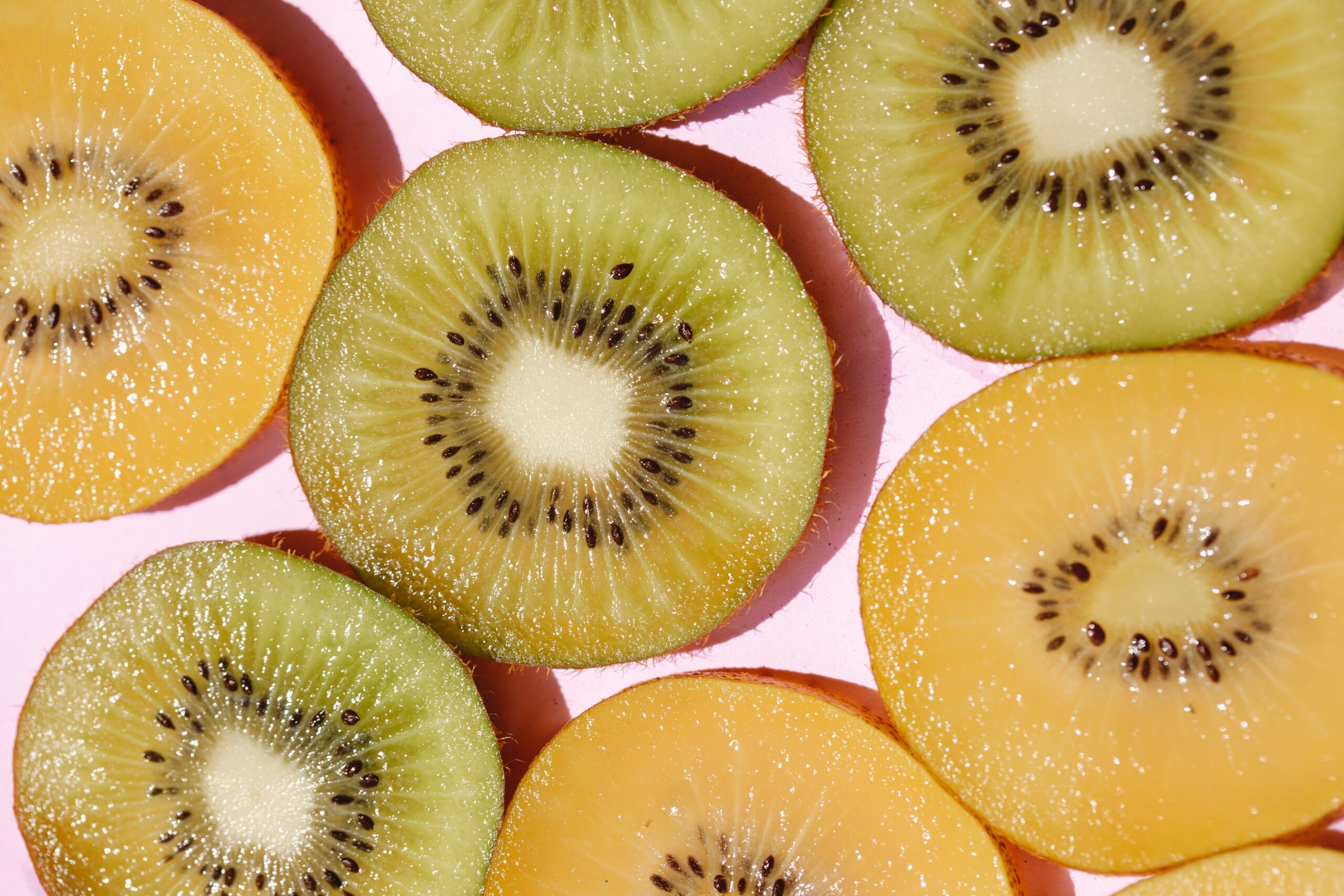Kiwis, those small, green fruits with vibrant, emerald flesh and tiny, black seeds, have become a staple in many households. Known for their unique taste and appearance, kiwis offer a plethora of health benefits for both kids and adults. In this article, we’ll explore why you should consider adding kiwi to your family’s daily diet.

Nutritional Powerhouse
For Kids:
For children, proper nutrition is essential for growth and development. Kiwis are packed with vital nutrients that can support your child’s well-being.
- Vitamin C: Kiwi is renowned for its high vitamin C content, which helps boost your child’s immune system, making them more resilient to common illnesses like colds and flu.
- Fiber: The fiber in kiwis aids in healthy digestion, prevents constipation, and keeps your child’s tummy happy.
- Potassium: This mineral is crucial for maintaining healthy blood pressure and muscle function, which is especially important for active kids.
For Adults:
Adults can also benefit from the nutritional richness of kiwis. These fruits can be a great addition to your daily diet.
- Vitamin C: A dose of vitamin C from kiwis can help you fight off illnesses, and it’s a fantastic natural way to enhance your skin’s health.
- Fiber: Adults can appreciate the digestive benefits of kiwi, and the fiber also aids in weight management.
- Potassium: Maintaining healthy blood pressure is crucial as we age, and kiwis can contribute to this by providing potassium.
Benefits for Both Kids and Adults

1. Immune System Support:
Kiwis are an immunity-boosting powerhouse. Their high vitamin C content helps prevent and fight off illnesses, which is beneficial for both kids and adults.
2. Digestive Health:
The fiber in kiwis aids in regular bowel movements, which is essential for both kids and adults. A healthy digestive system ensures proper nutrient absorption.
3. Heart Health:
Kiwis’ potassium content is advantageous for maintaining healthy blood pressure and overall cardiovascular health. It’s a benefit that spans across age groups.
4. Weight Management:
Whether you’re a child or an adult, maintaining a healthy weight is crucial. Kiwis are low in calories and high in fiber, making them a fantastic addition to your diet for weight control.
5. Skin Health:
As we age, maintaining healthy and youthful-looking skin becomes a priority. The antioxidants and vitamin C in kiwis contribute to radiant and healthy skin for both kids and adults.
How to Incorporate Kiwi Into Your Diet
Incorporating kiwi into your family’s diet is easy and enjoyable. Here are some ideas:

- Snack Time: Kids and adults can enjoy kiwi slices as a tasty and nutritious snack.
- Breakfast Boost: Add kiwi slices to your morning cereal or yogurt for a burst of flavor.
- Smoothie Star: Blend kiwi into your favorite smoothie recipes to enhance both taste and nutrition.
- Fruit Salad: Create a colorful and refreshing fruit salad with kiwi, along with other favorite fruits.
Potential Allergies and Precautions
While kiwis offer numerous benefits, it’s essential to be aware of potential allergies. Some individuals may be allergic to kiwi, experiencing mild to severe reactions. If you or your child has a known fruit allergy, consult a healthcare professional before introducing kiwi into your diet.
Conclusion
Kiwis are a fantastic addition to your family’s diet, offering a multitude of health benefits for both kids and adults. From boosting the immune system to supporting digestive health and maintaining a healthy weight, kiwis are a delightful way to enhance your overall well-being.
So, why not make kiwi a regular part of your family’s meals and enjoy the goodness it brings to the table?
Frequently Asked Questions
- Can my child eat kiwi every day?
- Yes, Ensure a balanced diet for your child.
- Can I eat kiwi while pregnant or breastfeeding?
- Kiwi is generally safe during pregnancy and breastfeeding, but it’s wise to consult with your healthcare provider for individual advice.
- Is kiwi suitable for people with diabetes?
- Kiwi can be part of a diabetic-friendly diet but should be consumed in moderation. Monitor blood sugar levels and seek advice from a healthcare professional.
- How do I know if I or my child is allergic to kiwi?
- Allergic reactions may include itching, swelling, or hives. If you suspect an allergy, seek medical advice.
- What’s the best time to introduce kiwi to a child’s diet?
- Kiwi can be introduced to a child’s diet after six months of age, following your pediatrician’s recommendations.
